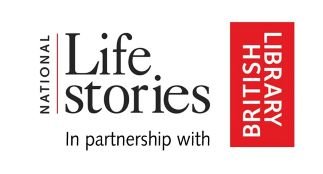
Saiful Islam
Saiful Islam was born in Karachi (West Pakistan) and is a Professor of Materials Modelling at the University of Oxford
Part of the external The British Library oral history collection
About
Saiful Islam was born in Karachi, West Pakistan. He is a chemist and Professor of Materials Modelling at the University of Oxford.
Saiful Islam was interviewed in 2013 by Paul Merchant for 'Oral History of British Science', a major archive for the study and public understanding of contemporary science in Britain created by National Life Stories. The full interviews are archived at the British Library under collection reference number C1379. Saiful Islam's interview is British Library reference C1379/104, © British Library.
Listen to Saiful talking about racial tensions in the UK in the 1970s spurred on by Enoch Powell and the National Front.
Interview conducted by Paul Merchant, 2013.
SI: Around when I was my O-level age, so 14, 15, you...and if you recall, so that was about 1977, '78, you could see socially in Britain there were...there was quite a bit of, I'm trying to think of the right word, turmoil is too strong. I think there was some difficulties in society. There were some...it was when Enoch Powell and the National Front were on the rise, so that was on the national level. And there was question marks over Black and Asian immigration. And it was probably...obviously fuelled by some right-wing Tories, Conservatives like Enoch Powell, who I know was eventually ejected from the Conservative Party by Ted Heath. And so you had some polarization in society that happens. Obviously, unemp...this always happens when unemployment begins to rise, scapegoats begin to appear. And the obvious scapegoats with...as ever was the other, and the other being people with darker skins. And, yeah, I just...mum and dad, you know, mum would...you know, she didn't want to say but I think she'd...she’s been spat at a few times at bus stops, but she was clearly different, she wore a sari, and told to, you know, effing go home. And, you know, I...so...and then when...as I say, when I actually mentioned those skinhead attacks, that made me become much more self-conscious about the fact that I was not seen as quite British, you know, not visually quite...white British, I was different. And I remember it starkly, we went on a coach trip, organized by an Asian group, a coach trip. And it was all fun and everything. And we got to the beach, I think it was a coach trip to Brighton or something, we were playing on the beach. And then on...as we got onto the coach back, I remember some obviously young youth, some...could have been some skinheads, and they were pointing and shouting at us because we were full of...this coach full of Asians. And it made my stomach churn. And it made me feel different, as if I didn't want to be there. I didn't want to be, and at the mo...at that time I remember hating it, because I hate...I didn't want to admit that I was Asian. So it was...so it made me very self-conscious about race then. So it was more about outside school. So actually, school was quite a nice environment. Home was a lovely environment. And I think I felt more threatened around that time and I think a bit more fearful about what could happen to me, sisters in terms of attacks and things.
For all permissions requests for audio and video clips and their transcriptions from external collections, please contact the original project or organization.
Entry credit
Laura Owen
